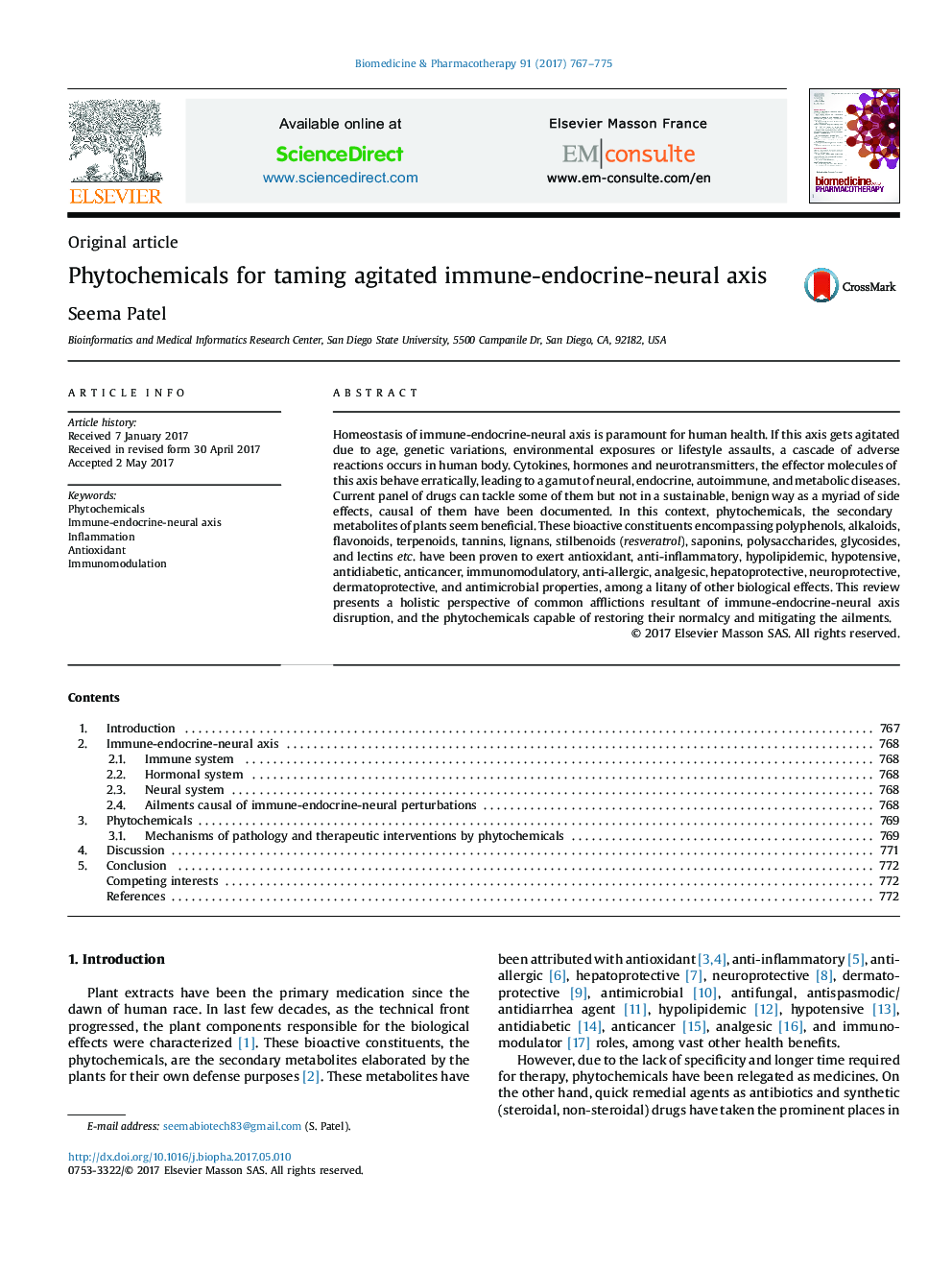| Article ID | Journal | Published Year | Pages | File Type |
|---|---|---|---|---|
| 5552907 | Biomedicine & Pharmacotherapy | 2017 | 9 Pages |
Homeostasis of immune-endocrine-neural axis is paramount for human health. If this axis gets agitated due to age, genetic variations, environmental exposures or lifestyle assaults, a cascade of adverse reactions occurs in human body. Cytokines, hormones and neurotransmitters, the effector molecules of this axis behave erratically, leading to a gamut of neural, endocrine, autoimmune, and metabolic diseases. Current panel of drugs can tackle some of them but not in a sustainable, benign way as a myriad of side effects, causal of them have been documented. In this context, phytochemicals, the secondary metabolites of plants seem beneficial. These bioactive constituents encompassing polyphenols, alkaloids, flavonoids, terpenoids, tannins, lignans, stilbenoids (resveratrol), saponins, polysaccharides, glycosides, and lectins etc. have been proven to exert antioxidant, anti-inflammatory, hypolipidemic, hypotensive, antidiabetic, anticancer, immunomodulatory, anti-allergic, analgesic, hepatoprotective, neuroprotective, dermatoprotective, and antimicrobial properties, among a litany of other biological effects. This review presents a holistic perspective of common afflictions resultant of immune-endocrine-neural axis disruption, and the phytochemicals capable of restoring their normalcy and mitigating the ailments.
Graphical abstractDownload high-res image (164KB)Download full-size image
